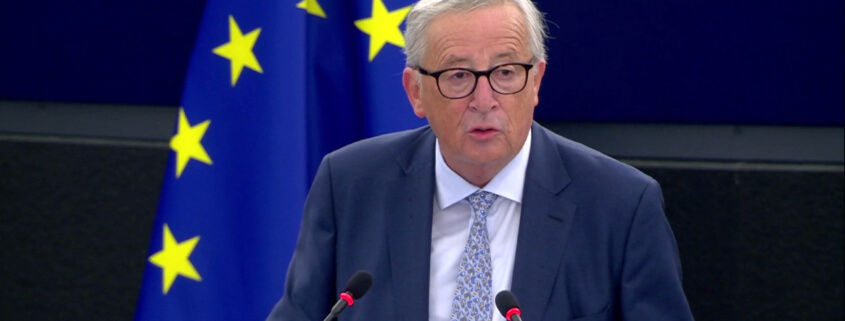State of the Union: making Europe great again?
In his annual State of the Union speech, European Commission President Jean-Claude Juncker has put a strong emphasis on the EU’s global role as the world’s largest single market, a regulatory trend-setter and peace-builder. He called for a strong and united Europe in times of volatility and change and criticized the scapegoating of the European Commission by Member States. CEC European Managers regrets that little attention is given to workers and managers in his speech, who will be essential to build a more resilient, sustainable and prosperous Europe.
Europe faces unprecedented and multidimensional challenges calling for concrete proposals that improve the working and private life of its citizens. If Brexit, migration and extremism are of utmost importance, their underlying caused can only be addressed by working together for more social and territorial cohesion, better education and institutions closer to citizens.
Like never before, social partners, governments and civil society have to stand against mounting authoritarianism and for a united Europe standing for democracy and human rights. EU institutions should see the current situation as an opportunity to reconnect with electors, to implement the European pillar of social rights and to develop a more modern and resilient economic model for the Union in the light of international threats.
Coming to the priorities the Juncker Commission had followed, a mixed picture can be drawn on its achievements, also due to the role of the Member States. On the jobs front, overall employment has risen throughout Europe. However, at the same time, in-work poverty and precarious employment forms are increasing. Ensuring social security, a living wage and work-life balance are central to making Europe more social.
With regards to the EU economy, the Euro-area still lacks sustainable crisis prevention mechanisms and governance. Despite low interest rates, investments remain low and could only to a limited extent be tackled by the Commission’s investment plan for Europe (With almost 300 bn € gathered through the European Fund for Strategic investments). CEC welcomes the adoption of the circular economy package and the clean energy package to steer towards a more sustainable economic model.
To remain a leader of innovation, CEC supports the proposal to increase the EU’s research budget and budget line on digital Europe in the next Multiannual Financial Framework. To effectively have an impact on the economy, these innovations have to be channeled and implemented – by a reviewed industrial and innovation policy, modern (higher) education institutions and lifelong learning. Equipping managers and workers with the right skills becomes of primordial importance, if innovation is to have any cross-sectoral effect.




